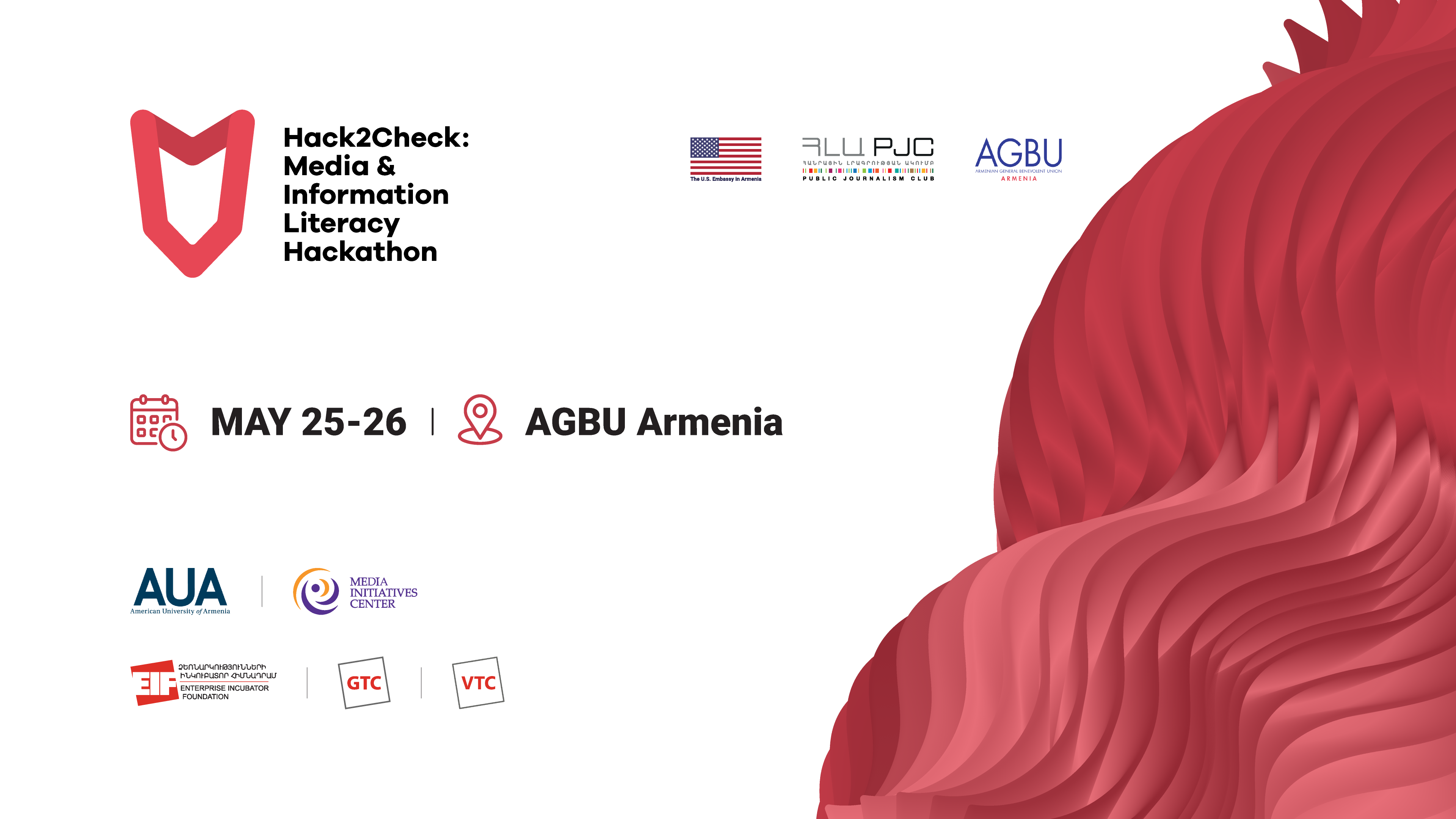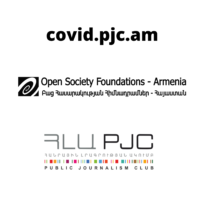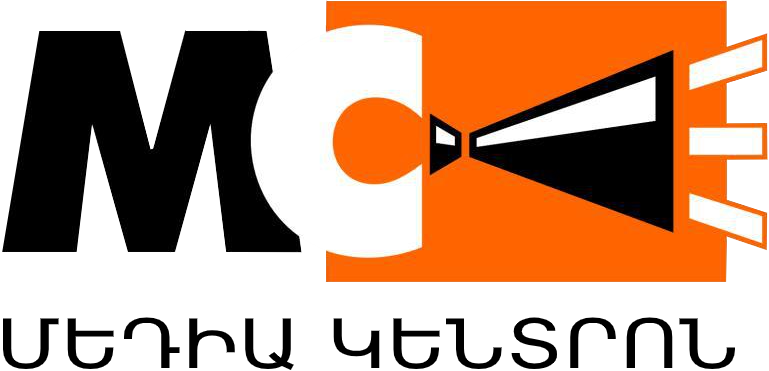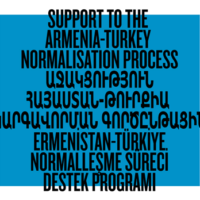
Hack2Check Hackathon 2024․ Fact-checking and media literacy solutions through technology․ Call for participation
- April 3, 2024
- Category: Announcements
The deadline for completing the online application form is April 30th.
The Public Journalism Club (PJC) is thrilled to announce a new Hackathon on media and information literacy.
Dear hackers, media representatives including journalists, media literacy experts, IT sector representatives, startups, IT security specialists, programmers, and representatives specializing in media literacy in the field of education, this competition is for you.
We are happy to inform that a “Hack2Check: Media and Information Literacy Hackathon” focused on projects with technological solutions aimed at fact-checking and media literacy capacity development will be held on May 25-26, 2024 (start: May 25, 10 AM, end: May 26, 6 PM)․
During the Hackathon, the authors of the 3 best ideas will be awarded USD 13,200 for their implementation.
Venue
The Hackathon will take place at the AGBU Armenia office located at Melik-Adamyan 2/2 in Yerevan. Teams will have access to the venue 24 hours. Food will be provided for all participants during the Hackathon. Please note that travel or living expenses will not be covered. Further details will be provided during informational meetings, the dates of which will be announced soon.
What can you do?
Propose an idea with technological solutions that will help promote media and information literacy in the areas listed below, promoting behavioral change in target groups:
- Educational sector: pre-school and general education,
- Identification of misinformation, propaganda, and combating them,
- Challenges of digital security and ensuring a secure online environment.
Before completing the application for participation, please take the time to thoroughly review the Terms of Reference of the Hackathon. This will aid you in understanding the problems the proposed projects should address, the target groups involved, the digital solutions that will be encouraged, and the international experiences relevant to this context. The document also outlines the selection criteria for Hackathon applicants.
The ToR was developed based on expert studies and discussions involving leading specialists from Armenia. Applicants may use the provisions outlined in the document as guidance, but they are not limited to them.
ToR – Hack2Check Hackathon 2024 – PJC
Individuals above the age of 18 are eligible to participate in the Hackathon.
The Hackathon will be implemented by the Public Journalism Club funded through a Department of State Public Diplomacy Section grant, in collaboration with the Armenian General Benevolent Union (AGBU) Armenia.
Our partner institutions, American University of Armenia (AUA), Enterprise Incubator Foundation (EIF) with its Gyumri and Vanadzor Technology Centers and the Media Initiatives Center, also joined this initiative. The list of partners is expanding.
The goal of the Hackathon
The purpose of the Hack2Check Hackathon is to promote the development of innovative solutions aimed at combating media and information literacy challenges as well as propaganda in Armenia. This will be achieved by bringing together youth, technology professionals, education professionals, and media experts.
The Hackathon will last for 24 hours, during which fact-checking and media literacy courses will be held by leading local and international experts. Participants will develop technological ideas, demo versions of which will be presented to the Hackathon jury.
The keynote speaker of the Hackathon will be Bret Schafer, a renowned expert based in the US. Bret serves as a senior fellow and head of the Information Manipulation Team for the Alliance for Securing Democracy, German Marshall Fund. He is the creator and manager of Hamilton 2.0, an online open-source dashboard tracking the outputs of Russian, Chinese, and Iranian state media outlets, diplomats, and government officials.
He will address modern manifestations of disinformation and propaganda, presenting international best practices in this context. Additionally, he will offer mentoring support to the Hackathon teams.
During and after the Hackathon, top experts in technology, media, fact-checking, education, and journalism will mentor the teams as they design, develop, and bring their projects to demo level. Their advice will contribute to achieving the most demanding and innovative solutions.
An informational meeting about the Hackathon will be organized, allowing applicants and interested individuals to participate. Further details about the informational meeting will be provided by the organizers at a later date.
Post-Hackathon: In the post-hackathon period (3 months), award-winning teams will receive mentoring support. Mentors will be selected from AGBU’s expert network, who will work with the teams through regular monthly online or offline meetings, providing the necessary support based on the project’s needs. To ensure the stability and continuity of the selected projects, opportunities for presenting them to investors, international donor organizations, and representatives from the ICT and media sectors will be explored.
Applications will be reviewed by representatives from PJC and AGBU. After the review process, selected participants and teams will be notified of the details and next steps. If you have any questions regarding the application process or the Hackathon, please feel free to contact Khanum Gevorgyan, the Projects Manager at PJC, via email at [email protected].
We invite interested media outlets to provide informational support. As a result, the Hackathon awareness materials will include the media outlets logos and other relevant information.
******
The “Hack2Check: Media and Information Literacy Hackathon” project aims to foster the development of innovative solutions to address media and information literacy challenges and combat computational propaganda in Armenia. By engaging young people, tech specialists, media practitioners, and media literacy experts, the program aims to raise awareness, build capacity, and create effective solutions to promote critical thinking and resilience against propaganda. The project details are available here.
This project is funded by a grant from the United States Department of State. The opinions, findings and conclusions stated herein are those of the Public Journalism Club and do not necessarily reflect those of the United States Department of State.





